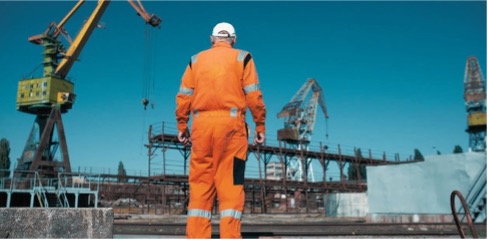
In the ever-evolving landscape of maritime and offshore industries, ensuring the safety, compliance, and optimal performance of vessels and installations is paramount. Surveys and audits emerge as indispensable tools, providing a systematic and thorough examination of operations, equipment, and processes. This article explores the significance of surveys and audits in these industries and their role in maintaining high standards of safety, environmental responsibility, and efficiency.
Surveys and audits are systematic assessments conducted to evaluate various aspects of maritime and offshore operations. While surveys often focus on the condition and compliance of physical assets, audits delve into broader aspects such as management systems, procedures, and regulatory adherence. Together, they form a comprehensive strategy for risk management and performance enhancement.
The primary objective of surveys and audits is to ensure safety. Regular inspections of vessels, offshore platforms, and associated equipment help identify potential hazards, structural weaknesses, and equipment malfunctions. By proactively addressing these issues, operators can mitigate risks and create a safer working environment for crews and the marine ecosystem.
Maritime and offshore industries operate within a complex web of international and regional regulations. Surveys and audits play a pivotal role in verifying compliance with these regulations, covering areas such as environmental standards, safety protocols, crew qualifications, and equipment certifications. Adherence to these standards not only ensures legal compliance but also contributes to industry-wide sustainability efforts.
As environmental concerns take center stage globally, surveys and audits extend their reach to assess and enforce eco-friendly practices. From emissions monitoring to waste disposal procedures, these evaluations aim to minimize the environmental impact of maritime and offshore activities. Embracing sustainable practices is not just a regulatory requirement but also a commitment to preserving the delicate balance of marine ecosystems.
Surveys and audits provide valuable insights into the efficiency of operations. By examining vessel and equipment performance, as well as the effectiveness of management systems, companies can identify areas for improvement. This proactive approach enhances overall operational efficiency, reduces downtime, and optimizes resource utilization.
The digital transformation is revolutionizing the landscape of surveys and audits. Advanced technologies such as sensors, drones, and data analytics facilitate more accurate and timely assessments. Remote surveys, enabled by high-tech communication tools, allow for real-time evaluations, reducing the need for physical presence and minimizing operational disruptions.
The findings from surveys and audits serve as catalysts for continuous improvement. Companies use these insights to refine their procedures, upgrade equipment, and enhance training programs. By fostering a culture of learning and adaptability, the maritime and offshore industries can stay ahead of emerging challenges and technological advancements.
Collaboration within the industry is crucial for the success of surveys and audits. Sharing best practices, standardizing procedures, and collectively addressing challenges contribute to the development of a robust framework for assessments. Industry collaboration ensures that surveys and audits are not merely compliance exercises but strategic tools for elevating industry standards.
As maritime and offshore industries navigate the future, surveys and audits will continue to evolve. The integration of artificial intelligence, machine learning, and blockchain technologies is anticipated to further enhance the efficiency and reliability of these assessments. Embracing innovation ensures that surveys and audits remain indispensable instruments for achieving excellence in safety, compliance, and overall operational performance.
Copyright 2025 Eastnesia Marine